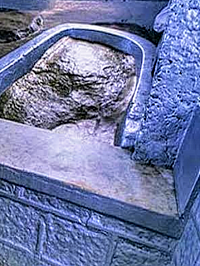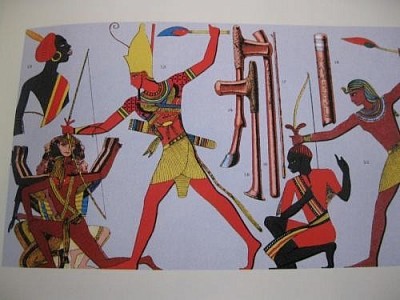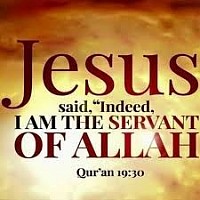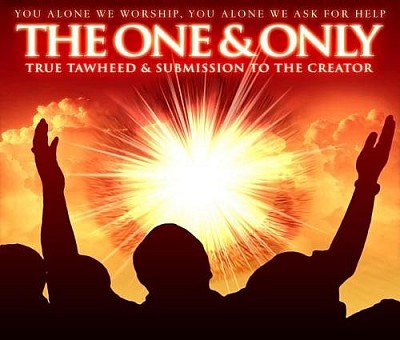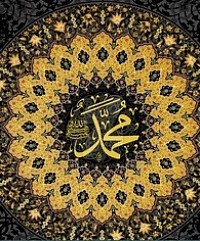Ustaz Ifriqi's Islamic Activities
NRI:- why did the pacifist kingdom of NRI disappear, which existed for over 1000 years in Africa
The kingdom of Nri was a refuge for all outcasts. It was also a safe place for runaway slaves. Similarly to the Christian religion, the state system acquired its power not by force and war but by peace and goodness. The founder of the kingdom is still revered as a “heavenly being” who descended to Earth and created a powerful civilization.
How did a strange kingdom arise, preaching a redemptive message, a territory bearing a sacred, mythical character? How could such a kingdom exist for more than a millennium, and why did it disappear?
In the 10th century, a lot of interesting historical events took place in the world. For example, all the Anglo-Saxon kingdoms united into one England, Abd al-Rahman III proclaimed the Caliphate of Cordoba, and the Holy Roman Empire was formed. The Capetians took the throne in France, the Vikings arrived in Newfoundland, and much more. In Africa, south of modern Nigeria, an unusual kingdom called Nri was formed at this time.
The realm of Nri is the highest achievement of the Igbo people. Now this once great people is one of the national minorities in Nigeria. They also live in other neighboring countries such as Cameroon, Ghana, and Equatorial Guinea.
The original origin of the Igbo is unknown. Their language has many dialects, all of which are related to the languages of other ethnic groups. This allows historians to conclude that they were related in prehistoric times. There is also a more poetic version. It says that they were originally from Egypt. There is no documentary evidence for this. Most likely, this myth came from the fact that the Igbo had strong trade ties with the Nile Valley.
Igbo people and their son of God
In fact, until the twentieth century, the Igbo did not constitute a single ethnic group, but were divided into about two hundred varieties. In turn, each was subdivided into about thirty nationalities. Other ethnic groups influenced them in the Niger region.
Initially, the Igbo villages were located at the confluence of the channels of the Niger (on its eastern bank) and Benue, from where they spread. Mainly thanks to the two powerful clans, Umeuri and Umunri. They considered themselves descendants of a common ancestor named Eri. In Igbo beliefs, it was the messenger of Chukwu (or Chineke), the supreme creator god of the world, to provide people with a modern social order. Eri was also of divine origin. He was the son of a god. It reminds me of something, doesn’t it?
Eri settled in the valley of the Anambra River, in Aguleri, where he married two women. The first was Nneamako, who bore him four sons and a daughter: Agulu, Attah, Oba, Menri, and Adamgbo. They founded cities and towns: the eldest – the city of Aguleri and its ruling dynasty, Ezeora; the second is the kingdom of Igala; Both are Benin; Menri founded the Nri kingdom and its Umunri dynasty. With his second wife, Oboli, Eri had another child named Onoja, who, according to other versions, was the creator of the aforementioned kingdom of Igala instead of Attah.
Descendant of the biblical patriarch?
Menri gave the kingdom his name. An interesting legend is associated with it. When his father passed away, he complained to Chukwu that he had interrupted his blessings. In response, God demanded to sacrifice his firstborn and daughter. They had to be buried separately. Menri obeyed, and after a few weeks, sweet potatoes sprouted from the graves.
Then he repeated the same with his slaves and received breadfruit and oil palm. After that, his family began to flourish. This story is also incredibly similar to the story of the biblical patriarch Jacob. Historians believe that later, according to these legends, it was possible to identify Eri as one of the sons of Gad, the son of Jacob. That is, Eri is the grandson of the Jewish Patriarch Jacob.
Archaeologists have found indirect confirmation of this theory by finding ancient tombs in the territory of Nri. Excavations have shown that some settlements in this region existed before Eri. After him, the kingdom only acquired a clear outline and the status of a state.
The monarchy in the kingdom was not a hereditary privilege. After the death of the monarch, the priests performed a ceremony when the deceased “indicated” his heir. After the election, he went through a kind of ritual. The king was anointed with white clay as a symbol of purity, then symbolically buried. After the death of kings, they were buried with great pomp in wooden sarcophagi.
Politics and religion are closely intertwined
As mentioned above, Nri was dominated by two clans. They were also the religious elite. They imposed this system on other nations as well. All had certain independence, both political and economic, but submitted to the authority of King (Eze) Nri. It had the appearance of a decentralized state with clear signs of a theocracy.
Eze was a religious head, having something in common with the Catholic Pope. If the Pope calls himself the vicar of God on Earth, then Eze claimed divine origin. His superiority allowed him to manage such a diverse and numerous population. Faith and the system of inviolable taboos were impeccable helpers in this.
Among the taboos, it is worth noting the ritual killing of children who were born with various defects, deviations, or anomalies. At the same time, violence was under an absolute ban. Murderers and rapists were expelled from society.
No conquests, only peace negotiations
From its very foundation, the Kingdom of Nri was forged in a very unusual way in world history: without conquest. Instead of sending armies against other cities to capture them, they spread their message of peace and harmony through merchants. Then they entered into a pact based on a ritual oath of allegiance. In order to strengthen ties, a big religious festival was held every four years. Priests (bishops) came to the city, they blessed the people and collected donations (tribute).
The expansion of the kingdom in this way lasted more than four centuries. It was a prosperous, peaceful state that a religious leader ruled. Eze did not live a worldly life. Other members of the religious clan traveled the country, helping to administer justice and conduct religious rituals. They also responded to the appointment of local authorities. They had special scars on their faces, by which they could be easily recognized.
The economic boom and the flourishing of the arts
Between the 13th and 15th centuries, Nri experienced its peak period of prosperity. The economy was based on agriculture. This way of existence determined the area where the jungle grew. There was a calendar in the kingdom, where there were thirteen months, 28 days each. The months were divided into four weeks of seven days. There are four market days for goods exchange, which were driven by their name: Eke, Oye (Orie), Afor, and Nkwo. The social structure divided labor into male and female. The land was collectively owned. Ownership of cattle gave high status. Trade was very important, both internal and external. Slavery in the kingdom was abolished. Fugitive slaves flocked here from all the surrounding states. Here they were free.
The arts also flourished. An important area was bronze casting. Often these were the heads of various animals, mostly elephants. Copper and iron were also mined in various regions of the country. During excavations, most art objects and working tools were found there. They also produced ceramics and jewelry.
All slaves come from Nri
Despite the fact that the peak of development was passed, prosperity continued until the end of the 17th century. Then Nri began to decline slowly. The development of slavery probably played a significant role in this. Muslims brought it from the north, and then Europe and America. Since the 18th century, up to eighty percent of the slaves captured by slave traders in the Niger Delta were Igbo people.
In parallel with this, the spread of Christianity, begun by the Portuguese when they settled in the Gulf of Guinea, was actively going on. They promoted it to facilitate trade. Faith was strengthened and rooted on the continent.
This was facilitated by the fact that the Christian faith had a lot in common with the beliefs of the Igbo. Peaceful principles, love for one’s neighbor – all this corresponded to the Christian commandments.
In addition, the Igbo also professed monotheism. There was a creator god and some secondary entities, called gods, but not having such reverence. They even had a prototype of the Virgin. It was the goddess of fertility Ala. She was depicted as a female figure holding a child. The Igbo believed that this was the messenger of Chukwu in the world, who should spread his word. There was even a semblance of the devil – the evil spirit of Odinani.
Remains of the former people today
The Nri kingdom only managed to survive thanks to the eradication of slavery and palm oil export. However, it was already very weakened. The British Empire took advantage of this. She invaded the territory, overthrew the Eze, and subjugated the lands to herself, making them a colony.
In place of the fallen kingdom, the Republic of Biafra was formed in 1966. The country tried to gain independence from Nigeria for some time, but this failed. This became the epilogue of the realm of Nri.
Comment les hommes ont apparu sur terre Selon le vaudoun

